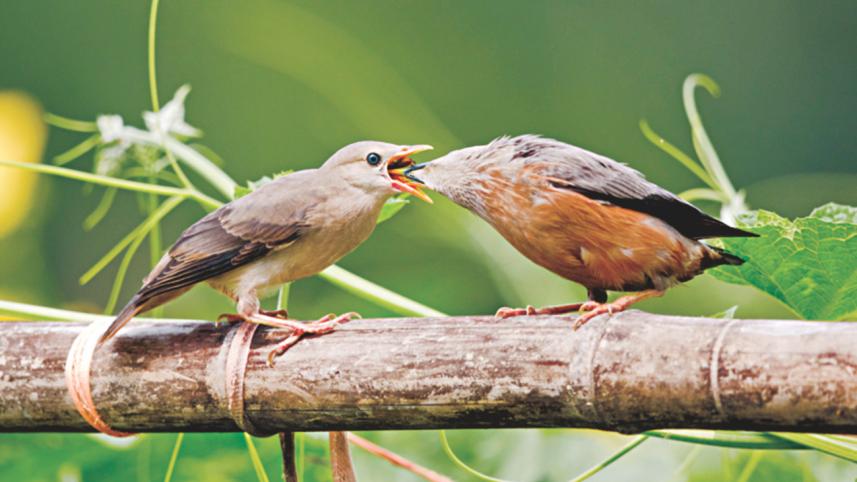A Midsummer's Morning

On a Saturday morning I set out for Purbachol. I leave my car where the 300-ft road ends and walk along the bank of a wide canal. The water level is low and the canal's breadth is covered with water hyacinth. A lone bronze-winged jacana forages there looking for insects.
It is only half past seven but the sun shines ferociously on my back, drenching me in sweat. The air feels heavy with moisture and the heat stifles. I am glad to be wearing a hat but wish I had brought a gamcha for better heat protection.
Presently I take a right turn towards the village of Bamunkhali. There is a sour smell of decomposing leaves as I pass a grove of banana trees. It is the smell of the earth, of life on fast-forward, speeding its way through our planet. Vegetable creepers crisscross a field, growing in every which way. In the bright sunshine, chlorophyll in the leaves works on overdrive, creating the plant's food. Heat radiates from the sky and the earth, dry above, humid below. I understand why everything grows faster here in the tropics.
A field of tall grass covers my left as I approach the village. The needle-thin stalks are waist-high, growing on sand that was used to fill this once-submerged patch. Black-headed munias play among them, balancing their tiny weight on the stalks.
Something bothers me here like it does every time I am in Purbachol. It is the lack of trees. There are miles and miles of open fields and very few trees - only around the scattered homesteads. This morning there is little shade in this land, filled only recently for residential purposes.
Farmers are out early tending to their fields. An older couple, working on their vegetable field, decide to take a break and go into their tin-shed. The older man is tough, sinewy, with leathery skin covering his torso. She is well-covered and has wrapped her sari loosely around her head for protection; he wears a gamcha and a lungi. Another woman brings out her sluggish cow and ties it mid-field for grazing. Then she sits under a macha tying the stems of her dhundol vegetable creepers so they can follow the macha's bamboo supports.
Birds ignore the heat. After spring's mating season, their chicks are out and about, growing fast. Shalik, doel, fingey – mother-child pairs are easy to find. The chick waits alone, with its mouth open, while mother goes to look for food. After a few minutes she returns with a morsel in her mouth which she deposits in the chick's open mouth – a transaction you are likely to miss if you blinked.
A juvenile fingey (its divided tail is shorter than the adult's) has recently learned to feed itself. It scans the grass while perched on a Macha bamboo and then swoops down, catching a fat larva in its beak, which it beats first to eliminate any venom before swallowing whole.
I surprise a guishap when I jump over an open drain. He runs for his life on his four squat feet, swaying from left to right like a penguin's waddle, only faster. A mongoose tiptoes through the weeds, sniffing for snakes.
Relief finally arrives in the form of clouds and a cool breeze. Shielded from the sun's rays, I heave a sigh of relief. The creepers keep growing and the birds keep chirping as life runs its feverish race on this hot midsummer morning.
facebook.com/tangents.ikabir.



 For all latest news, follow The Daily Star's Google News channel.
For all latest news, follow The Daily Star's Google News channel.
Comments